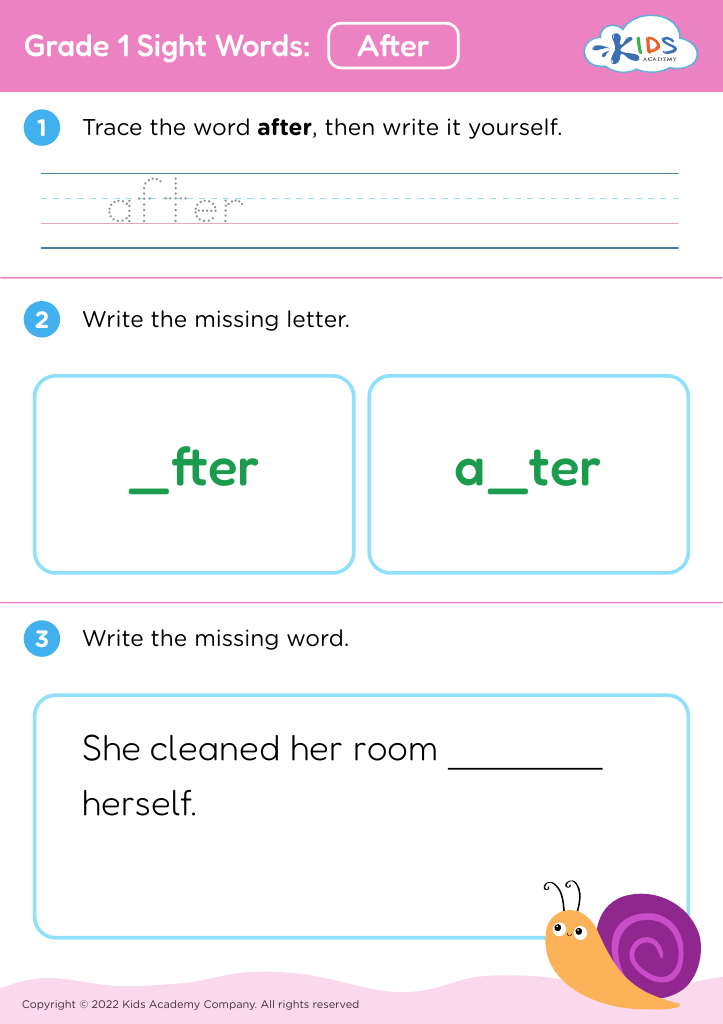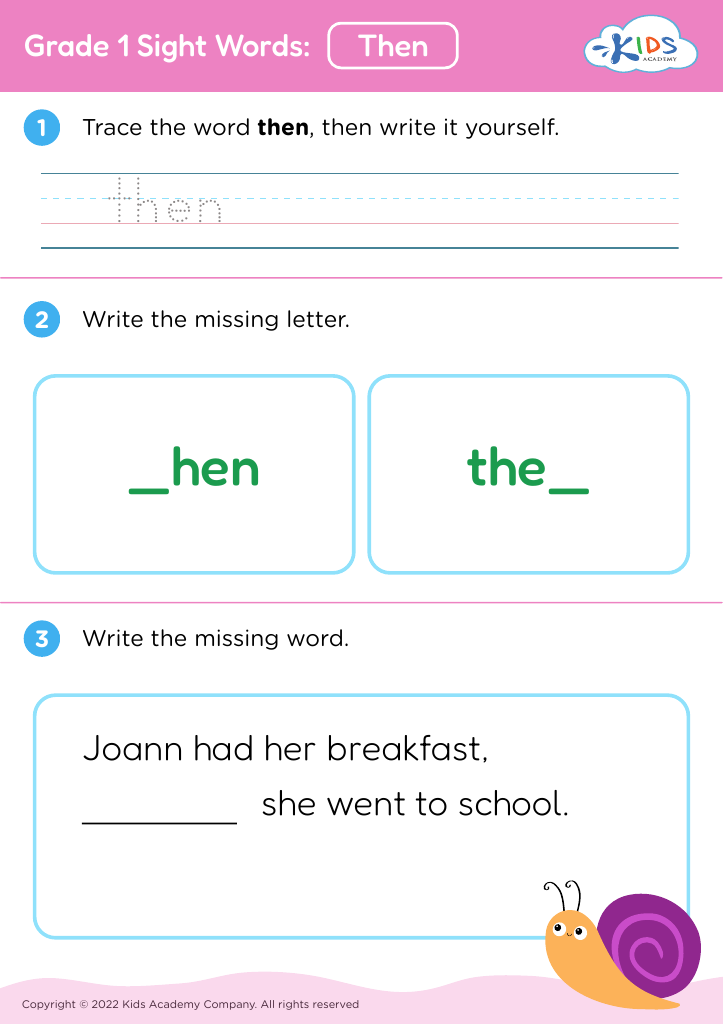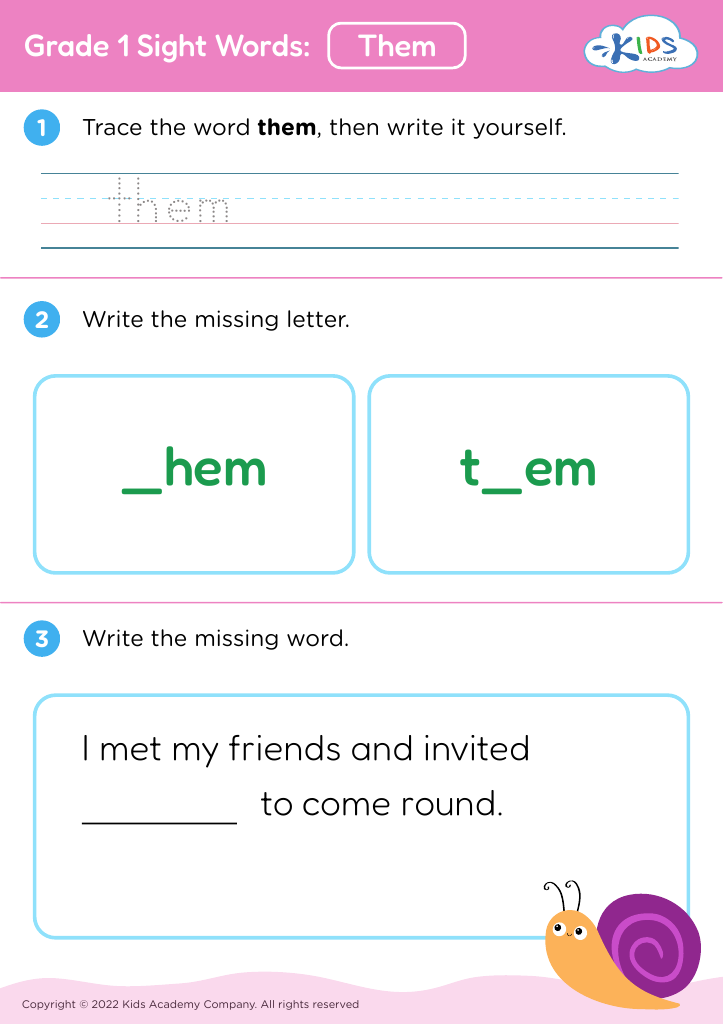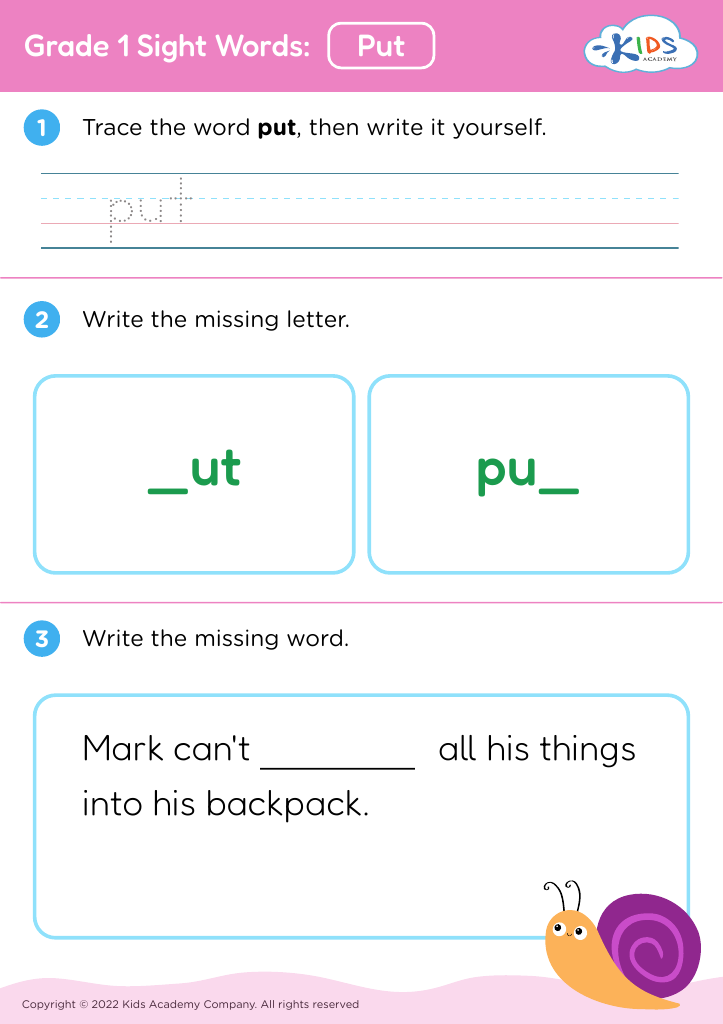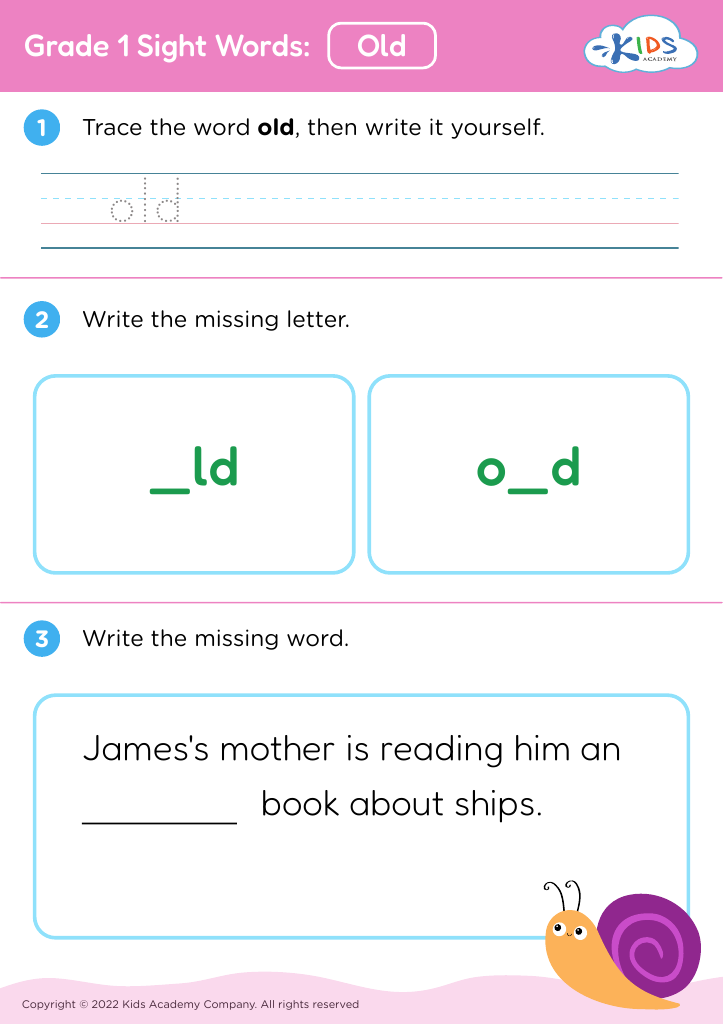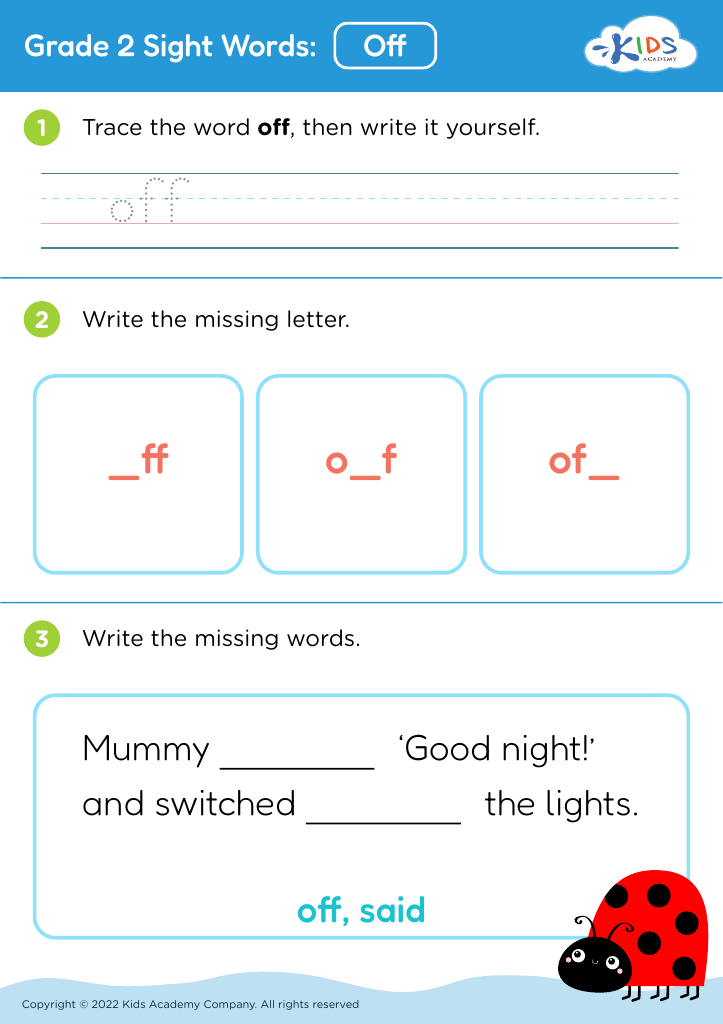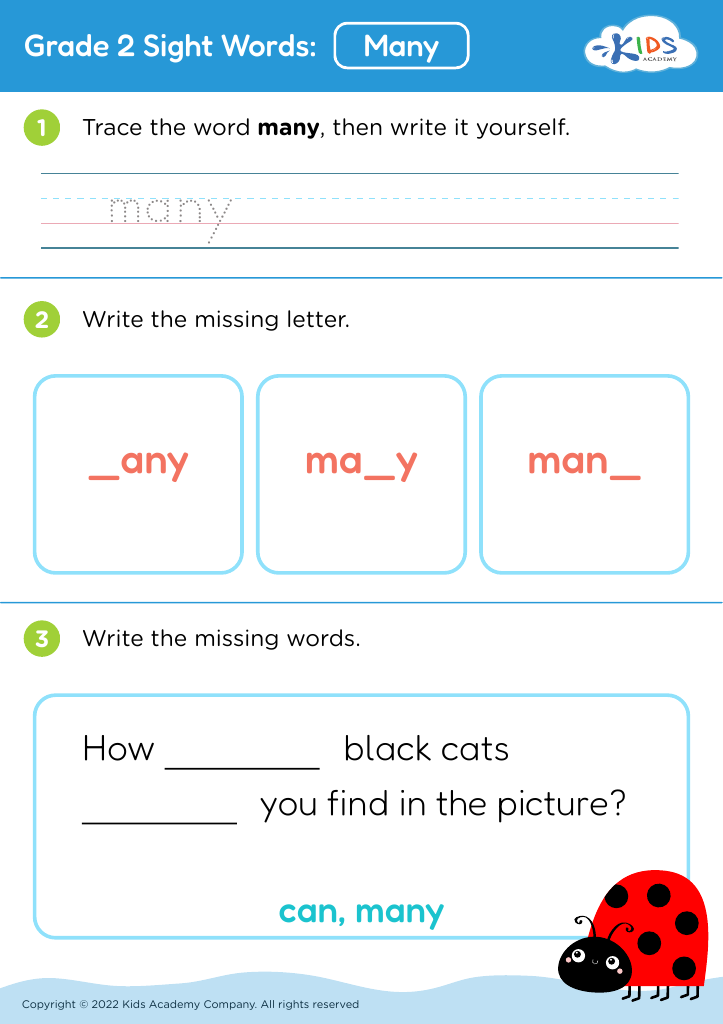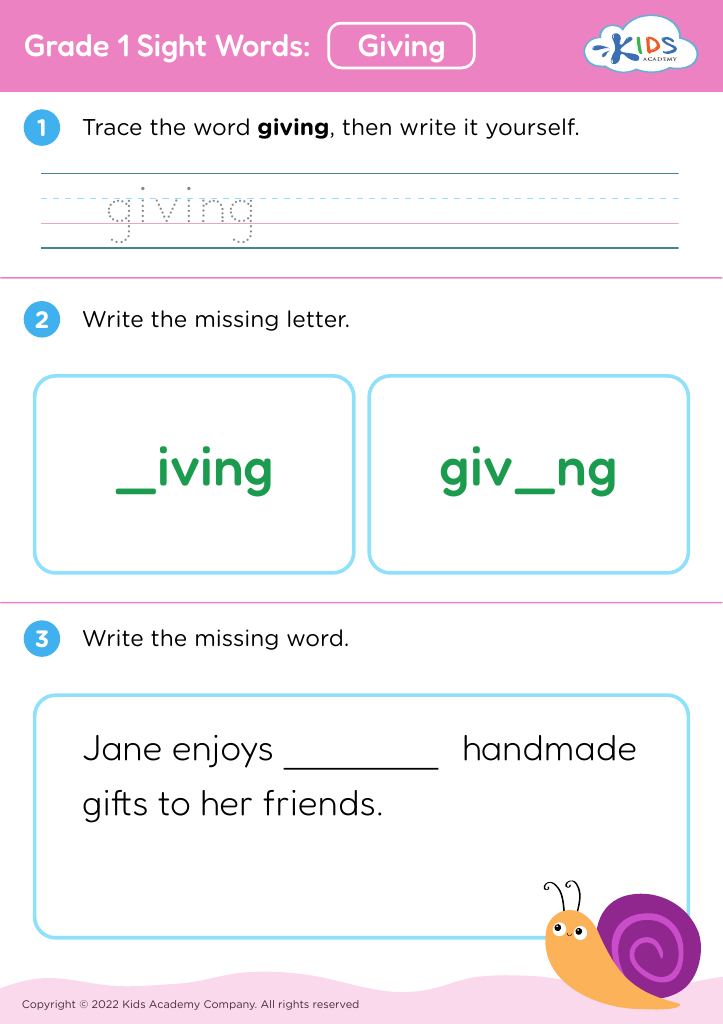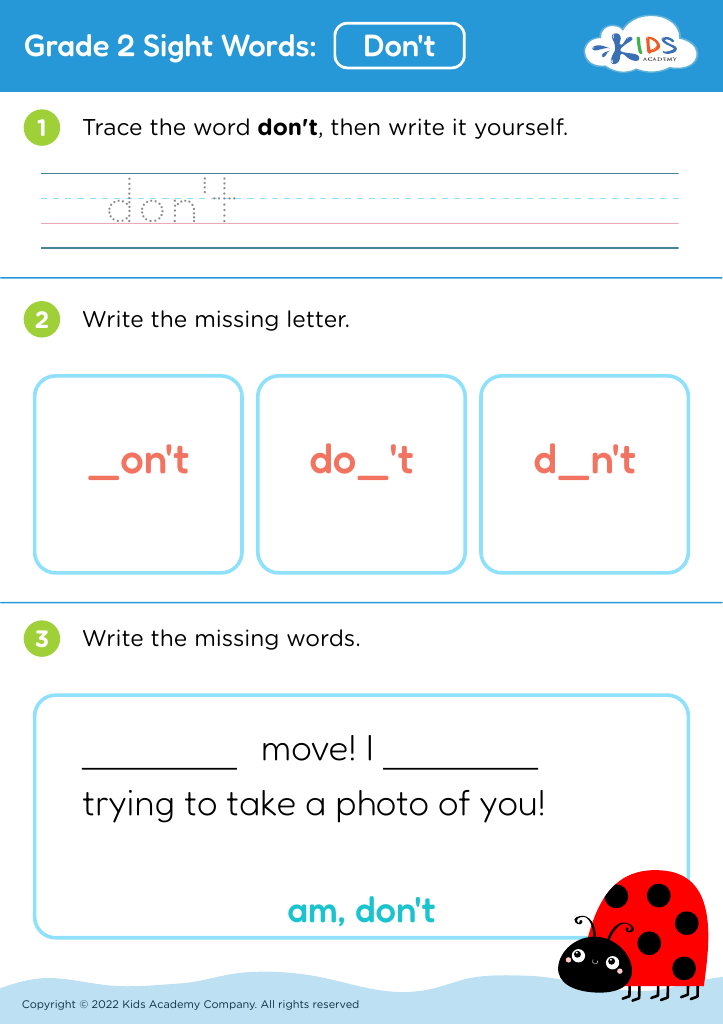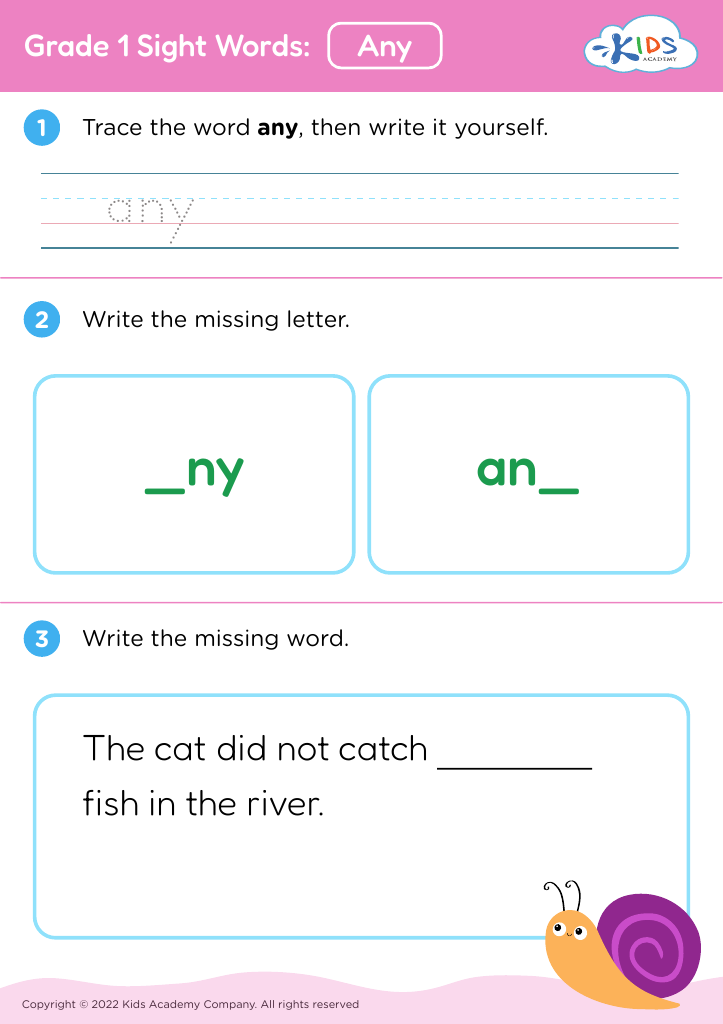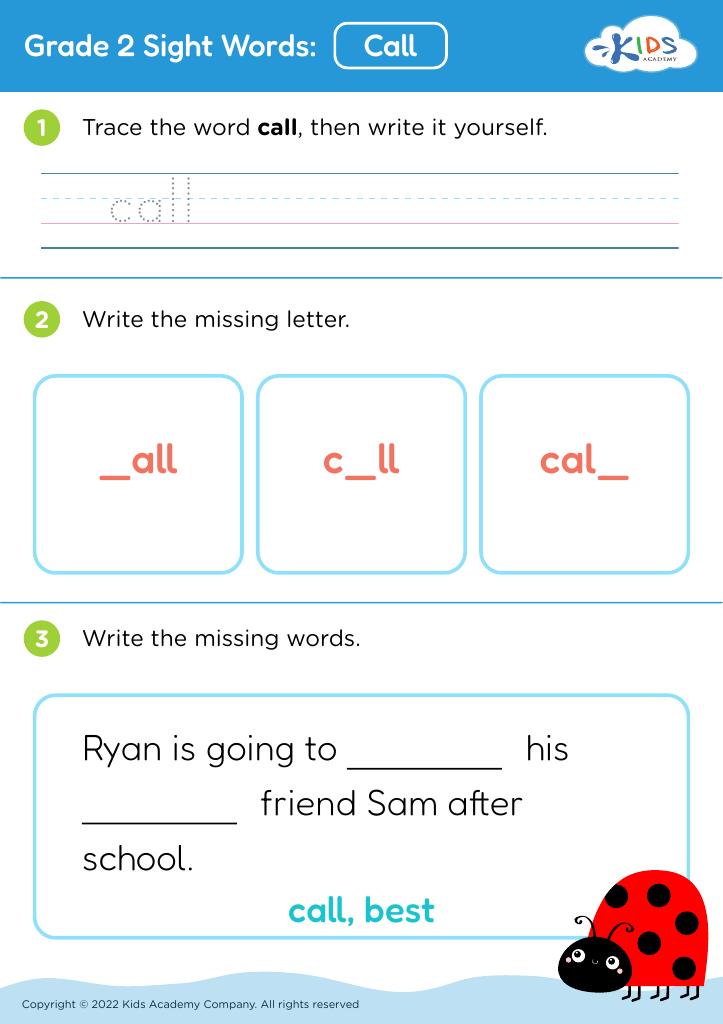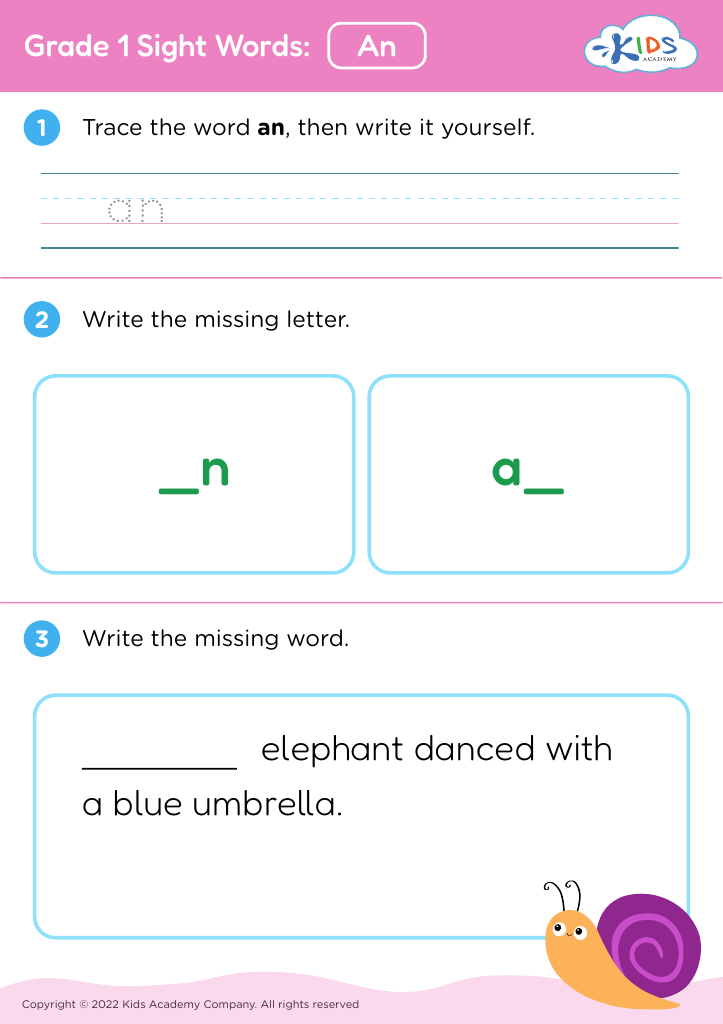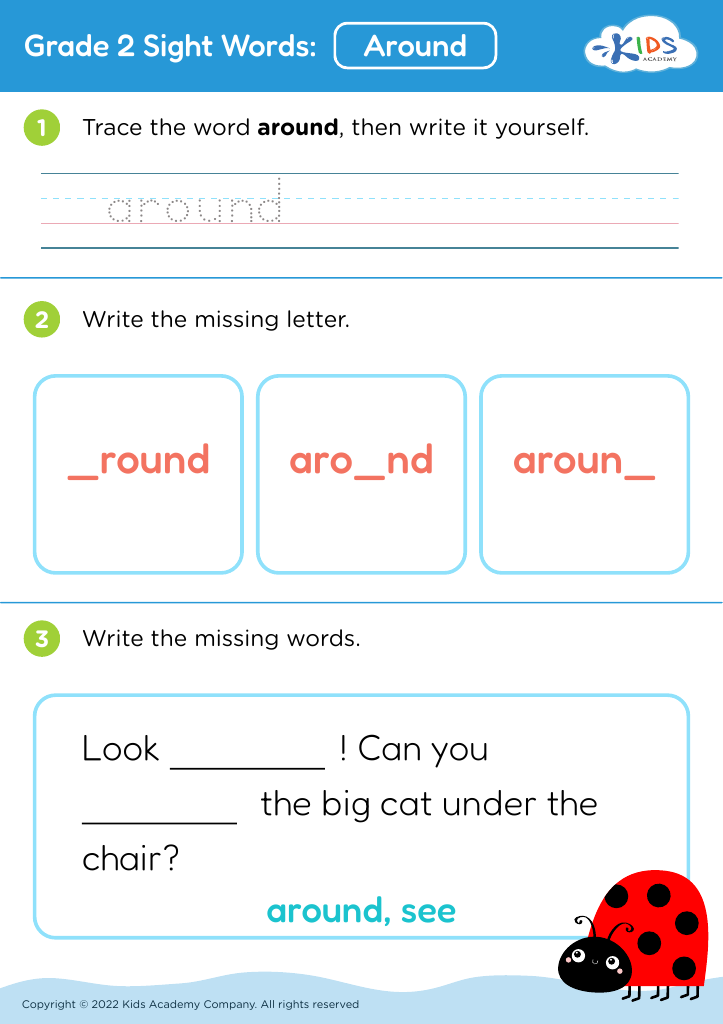Understanding fractions Reading Worksheets for 7-Year-Olds
24 filtered results
-
From - To
Explore our captivating "Understanding Fractions Reading Worksheets for 7-Year-Olds" designed to make learning fractions a delightful experience. These beautifully illustrated worksheets help young learners grasp the basics of fractions through engaging stories and activities. Perfectly crafted for 2nd graders, these printable resources guide children in recognizing halves, thirds, and quarters, enhancing their reading comprehension and mathematical skills simultaneously. Our worksheets encourage critical thinking and problem-solving in a fun, interactive way. Ideal for both classroom use and at-home practice, these tools support your child's educational journey, building a solid foundation in mathematics. Engage and inspire your child today!
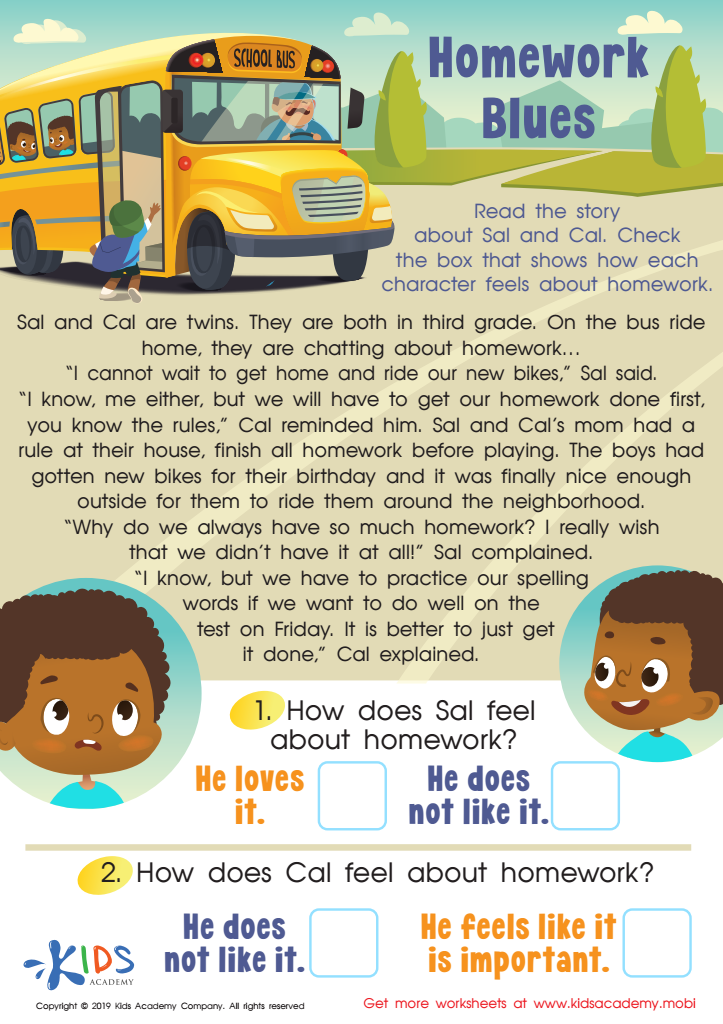

Homework Blues Worksheet
Understanding fractions is a fundamental aspect of mathematics that benefits children's cognitive development significantly. At an early age, around 7 years old, children are at a crucial stage of developing their mathematical skills and understanding of numerical relationships. Introducing fractions at this age helps them grasp concepts of part-whole relationships, equality, division, and ratios in a tangible way.
For parents and teachers, nurturing an early comprehension of fractions ensures children build a solid foundation for advanced mathematical concepts they'll encounter later in their academic journey. Fractions are integral to various everyday tasks and scientific studies, necessary for anything from cooking and measuring to computing probabilities and handling finances.
Early exposure to fractions also enhances mental agility. As children learn to manipulate fractions, compare them, and understand equivalence, they develop critical problem-solving skills and logical thinking. Integrating visual aids, practical examples, and interactive activities makes learning fractions enjoyable, thus motivating children to engage more deeply with the subject.
By focusing on understanding fractions, parents and teachers can help make math relevant and accessible, cultivating a positive attitude towards the subject. This educational groundwork not only bolsters their performance in school but also prepares them for real-world applications and fosters a lifelong love for learning and discovery.
 Assign to My Students
Assign to My Students

